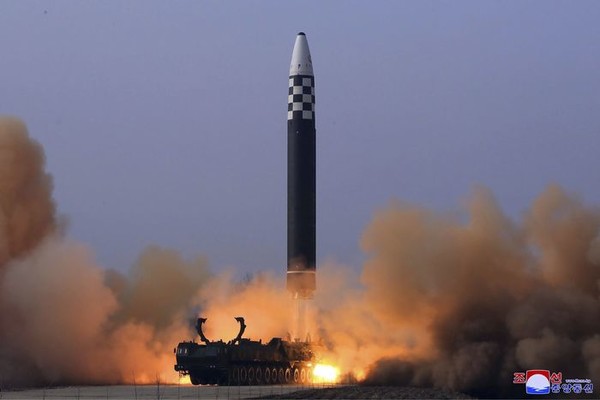Relations between the two Koreas have long been under wild fluctuations. While glimpses of hope for dialogue were intermittently seen, for instance in the Korean summit in 2018 or through the restoration of communication hotlines between the two countries, tensions have often escalated abruptly with the hostility of the North. The launch of an intercontinental ballistic missile (ICBM) on March 24 was one such occurrence.

North Korea has continuously been developing its arms despite countless United Nations Security Council resolutions and a moratorium on ICBM and nuclear weapon testing declared by Chairman Kim Jong-un himself in 2018. Last month’s launch was especially notable in that it was the first long-range ICBM launch since 2017. 11 missile tests have already been carried out from the start of this year, which exceeds the number of tests undergone during the entirety of last year. With North Korea clearly shifting towards a more provocative stance, we must ask: what are the motives behind the launch? Why did Kim attempt to showcase North Korea’s military power at this point in time?
Analyses often portray North Korea’s actions as an endeavor to demonstrate to South Korea, the US, and the rest of the world that the country is still a power that should not be disregarded. While the anti-US sentiment and aim to obtain an upper hand over South Korea existed in North Korea historically, this of course is a limited, surface-level statement.
Kim claims that the purpose of developing missiles is to protect his country from enemies, most prominently the US, stating that “Only when one is equipped with the formidable striking capabilities, … one can prevent a war [and] guarantee the security of the country.” This claim in itself cannot be said to be invalid; military power and threat certainly play a role in negotiations. However, North Korea has already faced numerous consequences for its weapons programs — extensive sanctions have been imposed internationally for years, severely impacting the country’s economy — and whether the value of weapon development exceeds those costs is highly questionable.
One speculation is that the increase in hostility may be a strategy to alleviate the effects of the currently-imposed sanctions. By demonstrating the development of their weapons program, negotiations on restrictions could be made in exchange for pulling back on its arsenal. The ongoing Russia-Ukraine war also poses an appropriate timing to test their missiles for North Korea. With relations between Russia, China, and the US turning frigid, US-led attempts to condemn North Korea and inflict more penalties are less likely to be supported by these countries, unlike previous instances.
Regardless of North Korea’s intentions, it remains true that their development of weapons is beyond the level of self-defense as it poses a threat to neighboring countries and the world at large. Simply looking at the ICBM launched on March 24 substantiates this — the missile landed in the East Sea, off the western coast of Japan, leading Japan to denounce North Korea over the tests. Judging by the altitude of the trajectory, experts also suggest that the range of the ICBM may be long enough to reach mainland US. Furthermore, anxiety is rising that North Korea may also be carrying out nuclear tests. If they manage to successfully attach a nuclear warhead to the missiles, the consequences cannot be fathomed.
South Korea and the US have intensified joint military exercises and intelligence activities following the missile launch. In particular, the South Korean military responded with five missile tests, and was seen to be less reliant on US forces in increasing testing of its own missiles. But the effects of these actions in deterring North Korean weapons programs seem minimal. So far, the Biden administration’s demand for denuclearization has shown little to no progress, and the harsher policies against North Korea expected from the new South Korean president-elect Yoon Suk-yeol do not seem any more hopeful. The issue at present seems to be the unpredictability of North Korea: breaching of agreements renders UN-mediated resolutions meaningless; neither a lenient nor rigid diplomatic policy seems capable of achieving long-term peace. With no certain method to keep North Korea and its arms under control, tensions on the Korean peninsula are unlikely to end any time in the near future.

